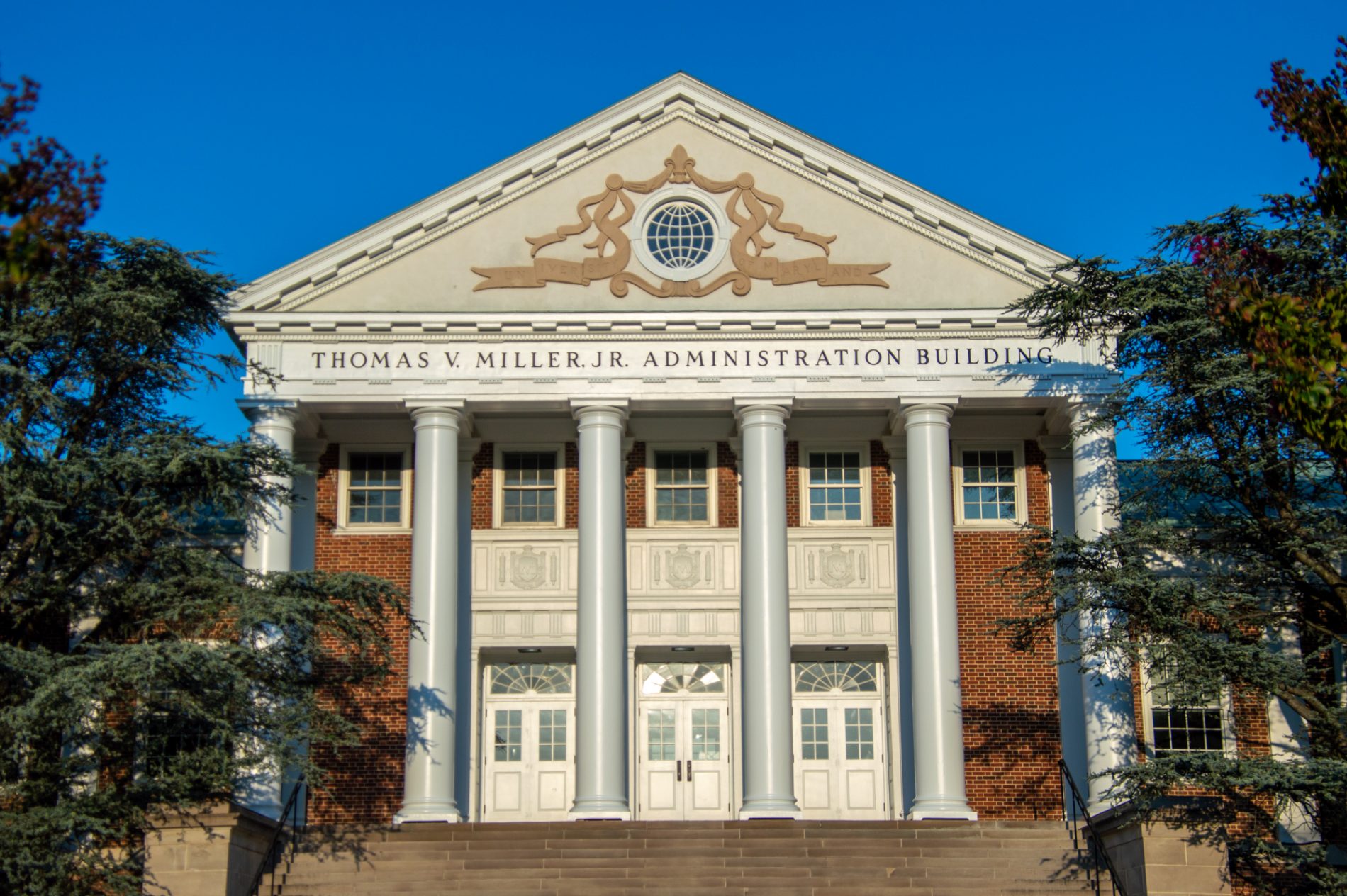University of Maryland administrators spelled out the university’s goals and outlook for its strategic planning process in a series of community forums that ended Tuesday.
At each of the forums, university President Darryll Pines, Provost Jennifer King Rice and Dean Chang, the associate vice president for innovation and entrepreneurship, presented the four commitments that will make up the university’s strategic plan.
The university entered its first phase in the strategic planning process in June, which involved putting together and speaking with the committees that are providing input on the plan. Now, it is in phase two, which involves engaging with stakeholders in the campus community. The plan is expected to be finalized in March.
The university is focused on taking on grand challenges, reimagining learning, investing in people and “building bridges to positively impact the future,” Rice said.
She said the university wants to focus on interdisciplinary research to tackle topics such as climate change and racial inequality. The strategic plan will also focus on developing hybrid learning opportunities, advocating for affordable tuition, building partnerships with local institutions, among other goals.
[Frustrated by UMD’s approach to strategic plan, a group of professors is making its own]
At the Nov. 10 forum, Rice said these commitments are not fully fleshed out, but will guide the content of the plan going forward.
“Strategic planning presents an important moment in our history for us to assess our current state, evaluate our strengths, engage our community and build a blueprint for our future,” Pines said at last week’s forum.
In addition to the presentation, community members watching the forums contributed thoughts and questions about each of the four commitments via Google Docs.
In relation to the grand challenges commitment, some viewers wrote down suggestions about improving sustainability in the university community.
During the question-and-answer portion of last week’s forum, Rice answered a question about following Stanford University’s example in creating a school specifically for climate and sustainability studies. She said the university has not made any specific decisions on how it will address climate change in the strategic plan, but that it will be a facet.
The university has made climate-related commitments outside its strategic plan. Currently, the agriculture and natural resources college offers a sustainability minor. Pines announced in April that the university will be carbon neutral by 2025. The university also committed to working toward the United Nations’ Sustainable Development Goals, which include climate action and clean energy.
[AFSCME report finds wage disparities by race and gender at USM schools]
“The science is one piece of it, but the development and implementation of policy and practices and individual responsibility and behaviors, that’s another entire set of conversations and disciplines that need to come to play,” Rice said. “We are absolutely going to need to find ways to coordinate this work across campus.”
The provost also said last week that international collaboration will be an important part of the university’s approach to addressing grand challenges.
“Some of the grand challenges that we’re talking about here are even more magnified in other developing countries, and so how we interact within those spaces is going to be very important with our grand challenge mission,” Rice said.
Other community members submitted suggestions and questions about updating old lab equipment on campus, instituting more virtual learning options for students who need them and prioritizing liberal arts, among other issues.
Some university community members were unhappy with the way the four commitments were discussed at the forums.
Recently, the university’s upcoming strategic plan has come under fire from this university’s chapter of the American Association of University Professors.
AAUP members expressed concern about Huron Consulting’s role in providing support for the strategic planning process. They are proposing their own alternative strategic plan that focuses on affordable housing around campus and hiring more professional-track faculty, among other issues.
Holly Brewer, the president of this university’s AAUP chapter, said the forum on Tuesday seemed vague and did not involve community members.
Rice said the university has engaged with over 500 stakeholders, including through committees, during its strategic planning process, but Brewer said she feels like some of those stakeholders are being “led by the nose,” and the process is not truly participatory.
“One can’t [not] agree in principle with things like reimagining learning as a goal … but there wasn’t actually any place on the forums or any encouragement to criticize anything,” she said.
Brewer also said she thinks some of the topics discussed at the forum, such as implementing more virtual learning options, are not the right path for the university to pursue.
Going forward, Pines encouraged community members to continue providing their input on the strategic planning process.
“It is so important for all of you to share your thoughts on how we can make the University of Maryland more respectful, inclusive and supportive place to live, work and learn,” he said. “Community feedback and engagement is crucial to advance in our mission.”



